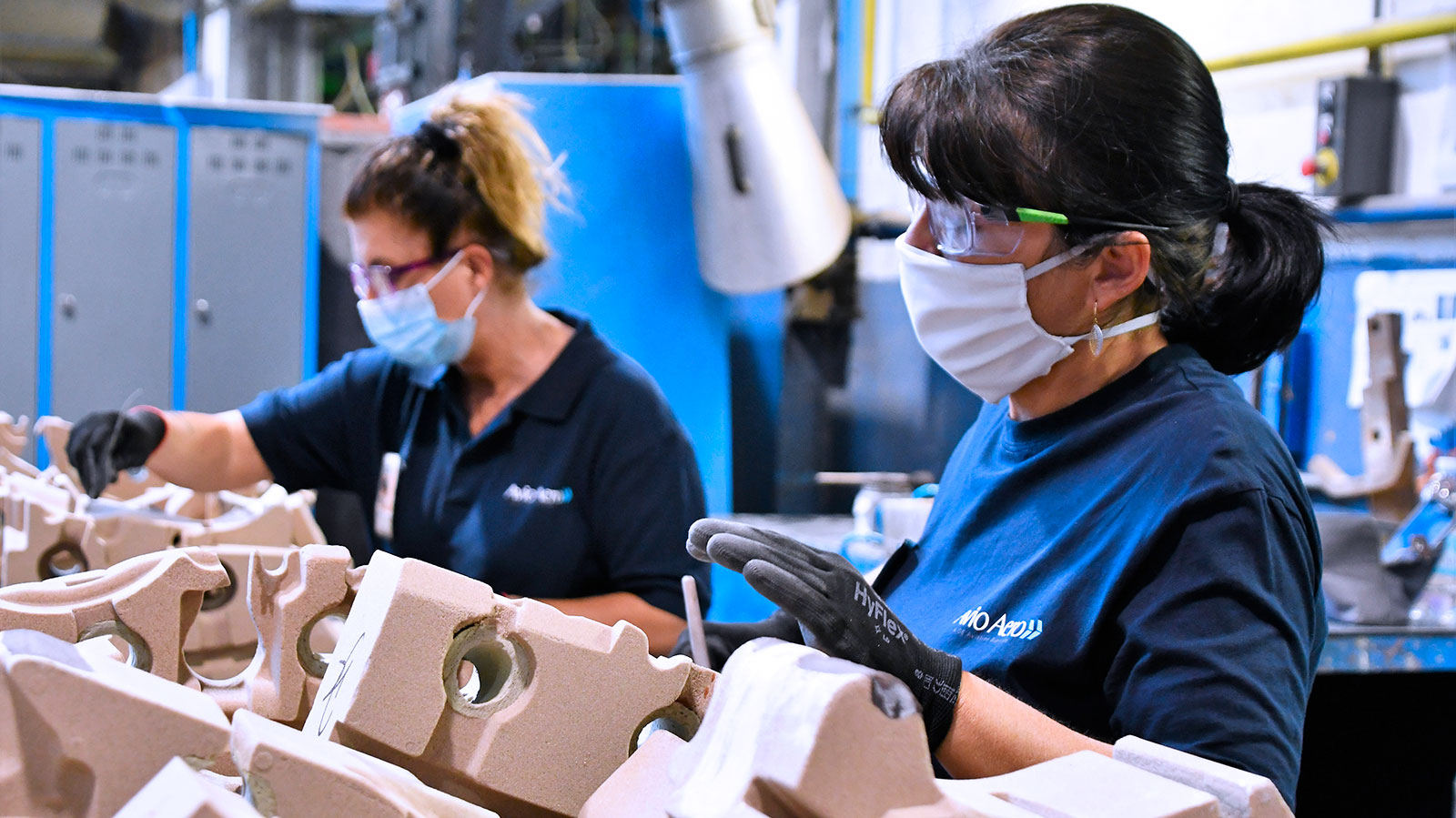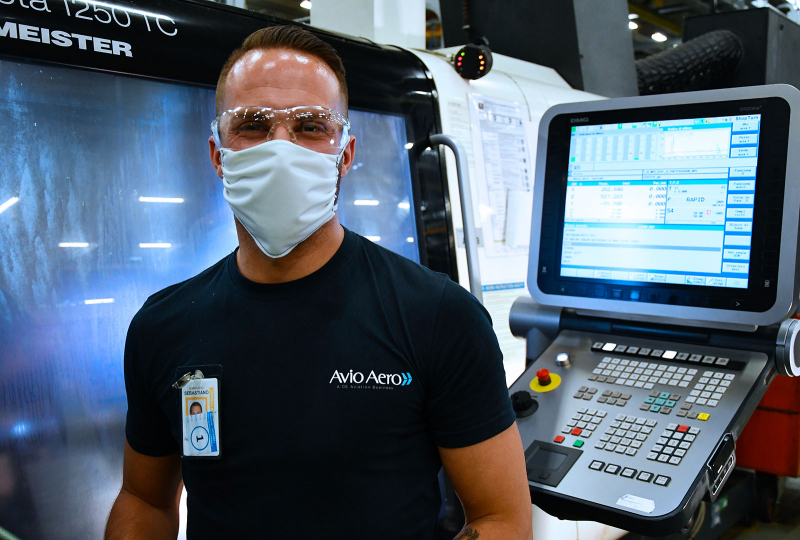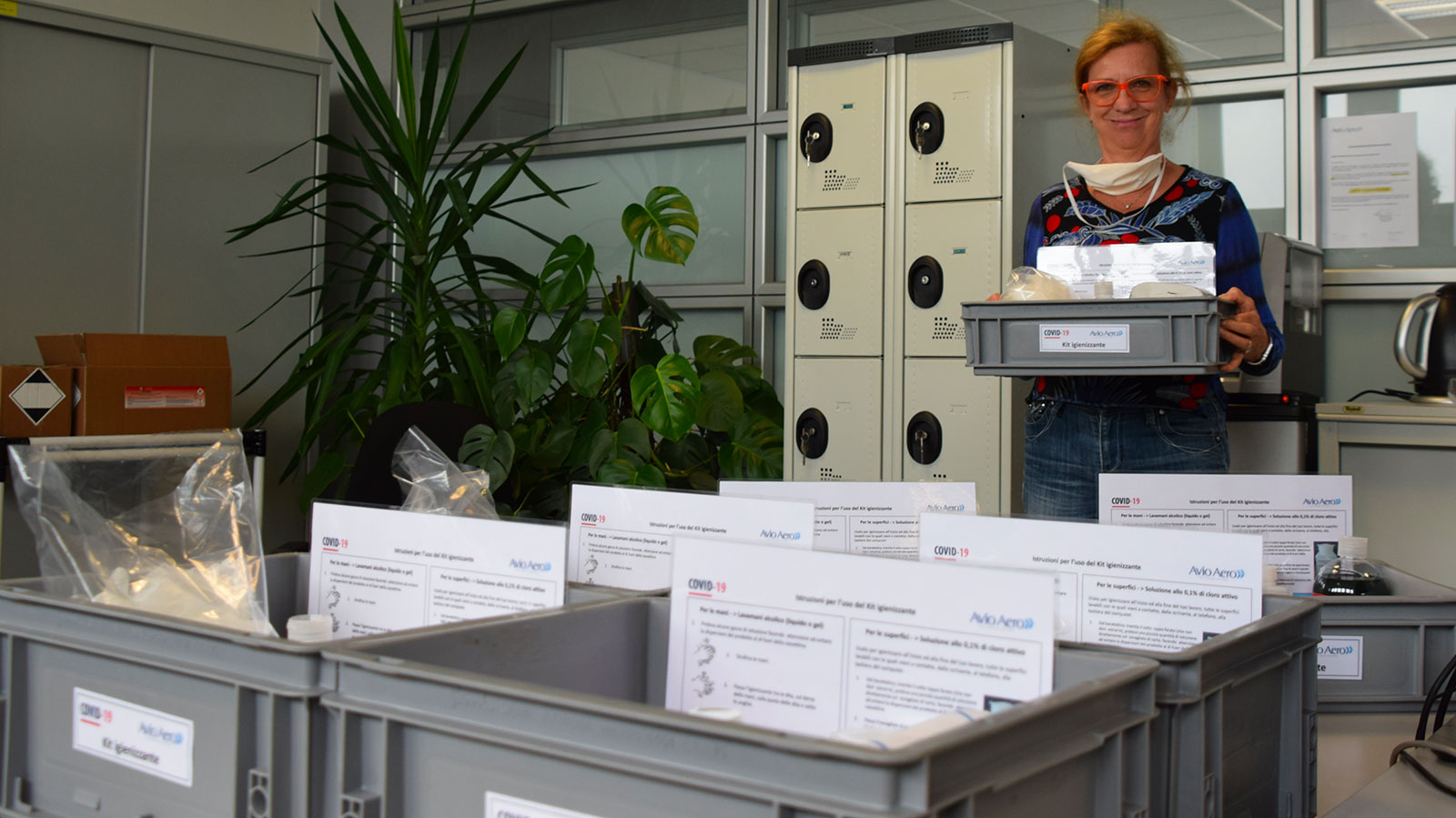Humans
Servant Leaders
How the global emergency has affected business transformation and human resource processes, as directly experienced by the HR Director of Avio Aero, Marilea Athanasopoulou.
Sep 2020
"The servant-leader is servant first... it begins with the natural feeling that one wants to serve, to serve first. Then conscious choice brings one to aspire to lead."
When Robert K. Greenleaf used these words in 1970, he introduced a concept that was considered futuristic at the time. Today, servant leadership represents a potential response to managing teams following the COVID-19 pandemic. Business leaders from every part of the globe have had to question their own roles and the most appropriate approach to take with the aim of fostering collaboration and involvement among people.
According to Greenleaf, servant leadership is a way of leading an organization or institution by connecting with and even serving others, empowering and involving people in decision-making, and facilitating the real growth of employees, who are able to improve their performance within this context.
Marilea Athanasopoulou - a graduate of the University of Padua with a Master’s degree from the University of Illinois - began her career in GE in the Oil & Gas and Healthcare businesses seventeen years ago. In 2016, Athanasopoulou became HR Business Partner for the Avio Aero Supply Chain. Since October 2019, she has led Human Resources for Avio Aero, which now employs over 5,000 people. The aviation industry, including Avio Aero, finds itself facing a challenge it has never had to deal with before: a profound disruption with an impact that is not only organizational, but above all, human.
"In just one night, when we went into lockdown, the world around us changed, and as a leadership team we found ourselves facing an unpredictable scenario. A health crisis first of all, then of course a business crisis. Protecting our people and at the same time protecting the company were and are the ultimate priorities."
"There was no time to think about the best leadership styles for the situation, rather we learned how to manage this new normal on the ground (and we are continuing to learn) by focusing on certain behaviours: seamless communications, listening and personal commitment," stated Athanasopoulou.
Of course, it wasn’t easy to change the pace immediately. Nor was it easy for leaders to mitigate any personal bias: “We have all learned to give others more space and trust”, continued Athanasopoulou. “We have chosen to be as direct and transparent as possible in order to make the choices about the here and now - albeit difficult - and the likely consequences for the future clear to everyone.”
"We have learnt a lot, and much still remains to be done, but the most effective progress is achieved outside one’s comfort zone, and I believe we will come out stronger from all this"
"The principle behind a Lean culture - continuous improvement - and the fundamental aspects of the servant-leader have gained even more significance in this context, in manufacturing as well as in all other areas. Supporting the teams in their business activities, finding new ways to ensure performance levels, addressing the needs and requirements arising from the situation.... We have learnt a lot, and much still remains to be done, but the most effective progress is achieved outside one’s comfort zone, and I believe we will come out stronger from all this."
The pandemic has undoubtedly reinforced the partnership of the HR department with all of the functions in the organisation. According to Athanasopoulou, "a change in outlook was already underway before the emergency: Avio Aero's focus on innovation was already leading us towards a digital, self-service and remote way of working. The health crisis has intensified this partnership, allowing within a short period time, for example, for the increased use of smart working, virtual learning, and the launch of webinars dedicated to inner wellbeing. The new tools and concepts of the so-called new normal."
An activity built on people centricity that leveraged on digital technology and on initiatives dedicated to communication as community aggregator. "A strategy and inclusive behaviours have been defined that would bring people closer together," explained the HR Leader, “enabling them to feel the human closeness of the leadership and making them feel part of the company’s objectives. First of all, we had to further develop skills such as creativity, resourcefulness and resilience, making our experience available to other areas of the business along with what we have learnt."
As many studies have found, in the most structured companies lockdown accelerated a transformation process that had already begun in some cases, and in addition to managing contingency priorities - protection of people and development of extended digital skills - it has provided an opportunity to really focus on caring for people. "Even before the crisis, much of our effort was directed towards the employee experience. Primarily, COVID-19 has brought us face to face with people's emotions. Relationship management and the sense of belonging have been a powerful element of transformation and integration," explained Athanasopoulou.
To deal with the new normal, every company must find its own formula, according to Marilea Athanasopoulou, "from a management point of view, the biggest challenge for us is to continue in the spirit of recent months, always keeping in mind the key question that servant-leaders must ask themselves: what can we do to help our people achieve their personal and professional goals?”







